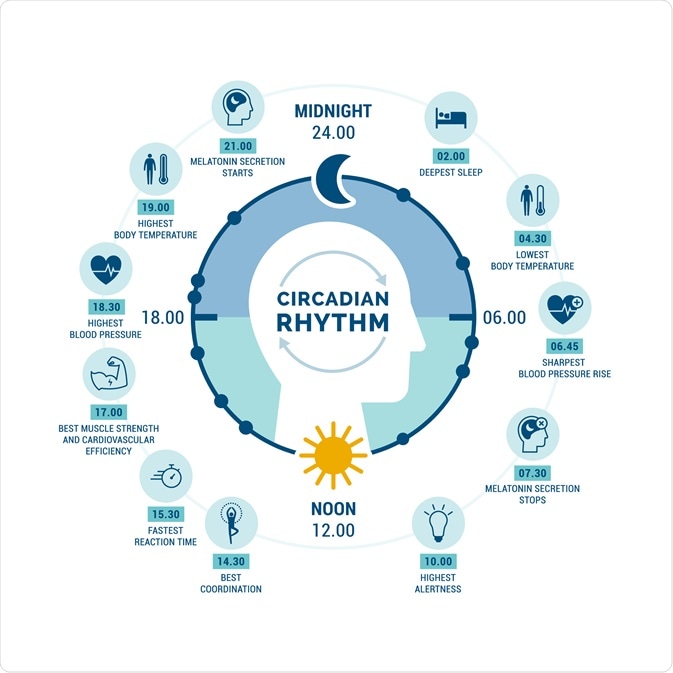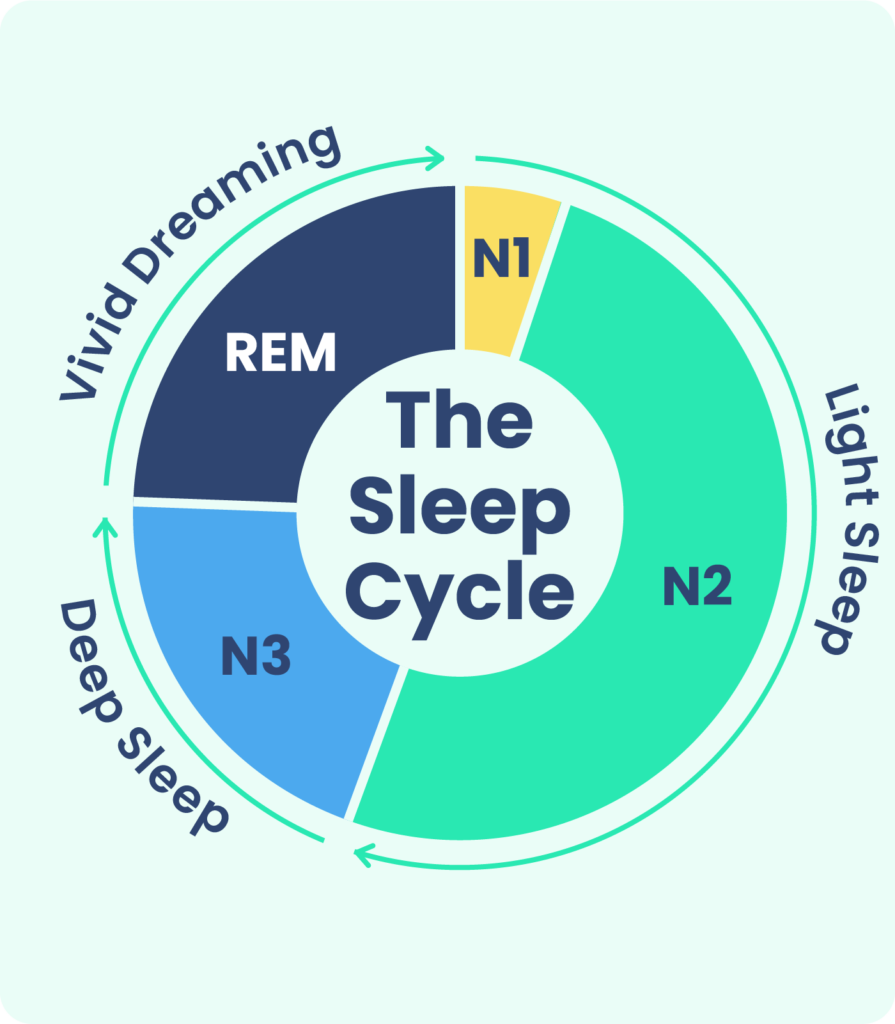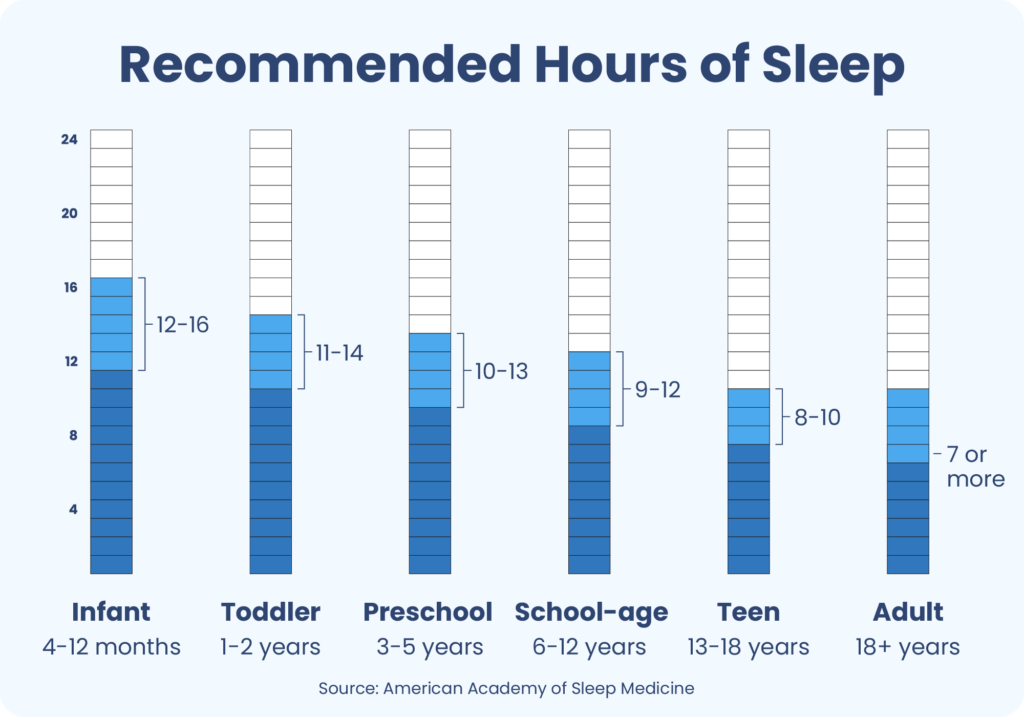Understanding the science of sleep and its importance for overall health.
Sleep is a complex biological process that is essential for our physical and mental health. While we sleep, our bodies and minds undergo a number of important changes that help us to repair and recharge.
How sleep works
Sleep is regulated by two main processes: circadian rhythms and sleep drive.
- Circadian rhythms: These are internal bodily clocks that control our sleep-wake cycle. They are influenced by light and darkness, as well as other factors such as our diet and exercise habits.

- Sleep drive: This is the feeling of tiredness that builds up over time when we are awake. It is driven by a number of factors, including the accumulation of adenosine, a neurotransmitter that makes us feel sleepy.
 When we go to sleep, our bodies and minds undergo a number of changes. Our heart rate and breathing slow down, our body temperature drops, and our muscles relax. Our brains also undergo significant changes, including the production of different hormones and neurotransmitters.
When we go to sleep, our bodies and minds undergo a number of changes. Our heart rate and breathing slow down, our body temperature drops, and our muscles relax. Our brains also undergo significant changes, including the production of different hormones and neurotransmitters.
Sleep is typically divided into two main stages: non-rapid eye movement (NREM) sleep and rapid eye movement (REM) sleep.
- NREM sleep: NREM sleep is further divided into three stages: N1, N2, and N3. N1 is the lightest stage of sleep, and N3 is the deepest stage of sleep.

- REM sleep: REM sleep is characterized by rapid eye movements, muscle paralysis, and vivid dreams.
:max_bytes(150000):strip_icc()/what-is-rem-sleep-5085353-Final-89e259e298f84d9296493fcb2db9fbc8.gif) During the course of a night, we typically cycle through NREM and REM sleep several times. Each cycle lasts for about 90 minutes, and the amount of time we spend in each stage varies depending on the time of night.
During the course of a night, we typically cycle through NREM and REM sleep several times. Each cycle lasts for about 90 minutes, and the amount of time we spend in each stage varies depending on the time of night.
Why sleep is important
Sleep is essential for our physical and mental health. It helps us to:
- Repair and restore our bodies: Sleep helps our bodies to repair and restore tissues, muscles, and organs. It also helps to strengthen our immune system and fight off infection.
- Regulate our hormones: Sleep plays a role in regulating the production of a number of hormones, including growth hormone, melatonin, and cortisol. These hormones are important for a variety of bodily functions, including growth, metabolism, and stress response.
- Improve our mood and cognitive function: Sleep helps to improve our mood, concentration, memory, and problem-solving skills. It also helps us to learn and retain new information.
- Reduce our risk of chronic diseases: Sleep deprivation has been linked to a number of chronic diseases, including heart disease, stroke, diabetes, and obesity.
How much sleep do we need?
The amount of sleep that we need varies depending on our age, health, and lifestyle. However, most adults need between 7 and 8 hours of sleep per night.
Tips for getting a good night's sleep
There are a number of things that we can do to improve our sleep quality, including:
- Establish a regular sleep schedule and stick to it as much as possible, even on weekends.
- Create a relaxing bedtime routine.
- Make sure your bedroom is dark, quiet, and cool.
- Avoid caffeine and alcohol before bed.
- Get regular exercise, but avoid exercising too close to bedtime.
- See a doctor if you have trouble sleeping.
Here are some specific examples of how sleep affects our overall health:
- Sleep helps to improve our immune function. When we sleep, our bodies produce more white blood cells, which are essential for fighting off infection.
- Sleep helps to regulate our metabolism. Sleep deprivation can lead to weight gain and obesity.
- Sleep helps to improve our mood and mental health. Sleep deprivation can lead to anxiety, depression, and irritability.
- Sleep helps to improve our cognitive function. Sleep deprivation can lead to difficulty concentrating, remembering things, and making decisions.
Overall, sleep is essential for our overall health and well-being. By getting enough sleep, we can improve our physical and mental health, reduce our risk of chronic diseases, and live a longer, healthier life.
Conclusion
Sleep is a complex and essential biological process that plays a vital role in our physical and mental health. By understanding the science of sleep, we can take steps to improve our sleep quality and reap the many benefits that sleep has to offer.




























